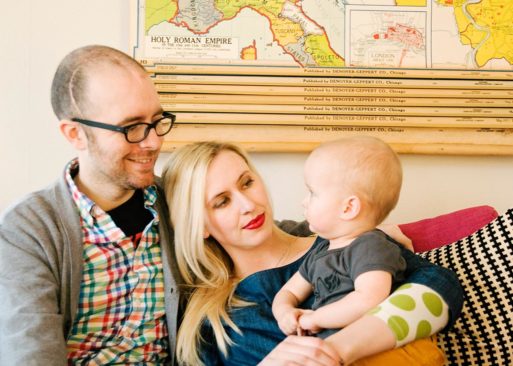
Credit: theparkwaytheater.com
Nora McInerny’s “No Happy Endings” reflects on the complexity of finding love after loss and creating a second chapter after tragedy strikes and forcibly ends the first.
In 2017, McInerny published a memoir called “It’s Okay To Laugh: (Crying Is Cool Too)” about losing her husband Aaron Purmort, who was diagnosed with a rare form of brain cancer and died at the age of 35. That memoir became a national bestseller. McInerny also found success with a podcast called “Terrible, Thanks For Asking” in which she interviews guests about their experiences with death, loss, and trauma. She addresses difficult topics with vulnerability, compassion, and humor. Her wryness and wit are invaluable tools for making the subjects she tackles digestible.
McInerny was devastated by Aaron’s passing. But a year and a half later, she fell in love with a man named Matthew. She was pregnant and creating a new blended family consisting of Matthew’s two older children from a previous marriage and the six-year-old son that McInerny and Aaron had chosen to have even though he was terminally ill.
“No Happy Endings” addresses the author’s layered feelings about the new life she’s building. She’s deeply in love and overjoyed about it, but she’s also still grieving the man she believed was the love of her life. “I’m in love again. With two men, now. I’m basically a polygamist but nobody can be put in jail for it because one of them is dead,” she writes. She has to learn how to hold space for all of it, and in doing so publicly in “No Happy Endings,” she teaches readers that they can do the same.

Nora McInerney shares a happy moment with her late husband and their son in 2014
Credit: slate.com
McInerny bucks the conventional wisdom that grief is something one moves on from or gets over. She believes that her sorrow over Aaron’s death will forever live with her, side by side with the joy and fulfillment her new family and new love bring her. “Yes, I have a life I love, and a life I miss,” McInerny writes.
“No Happy Endings” is a beautiful and accessible meditation on grief and healing. McInerny’s self-examination is exhaustive and sheds light on the complexity of the grieving process.

 “No Happy Endings” by Nora McInerny
“No Happy Endings” by Nora McInerny



 Funeral Favors Offer Visitors a Tangible Memento
Funeral Favors Offer Visitors a Tangible Memento
 “Comeback” by Prince
“Comeback” by Prince















